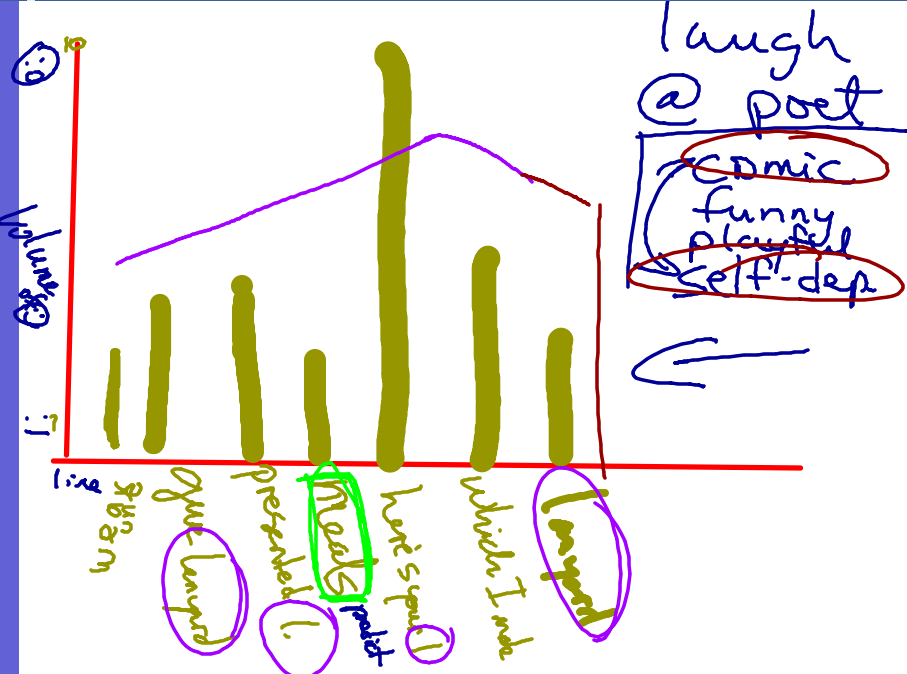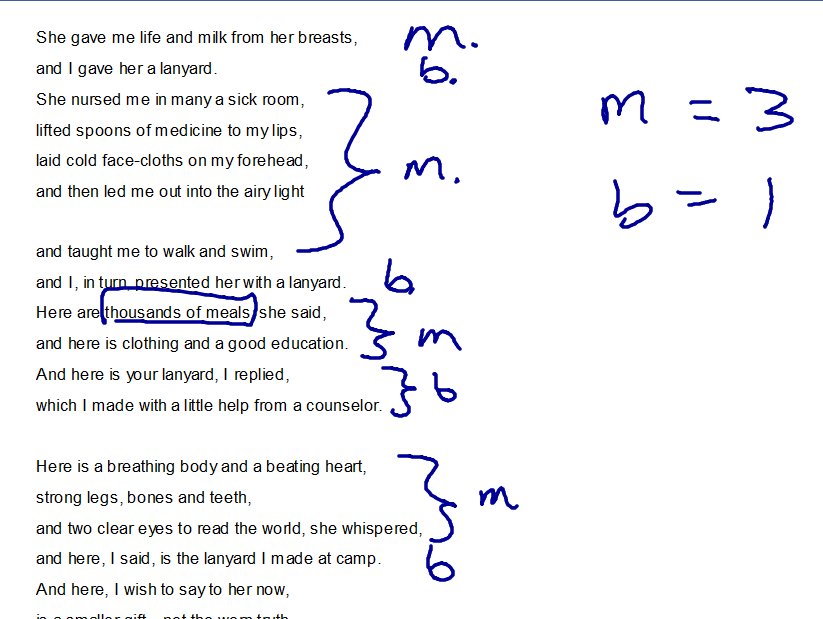We’re working on poetry in my honors classes, and being halfway through the unit, we’ve turned our attention to one of the most difficult things to do in the class: determine the tone of something. Our something was Billy Collins’s (rightfully) semi-famous “The Lanyard.”
The other day I was ricocheting slowly
off the blue walls of this room,
moving as if underwater from typewriter to piano,
from bookshelf to an envelope lying on the floor,
when I found myself in the L section of the dictionary
where my eyes fell upon the word lanyard.No cookie nibbled by a French novelist
could send one into the past more suddenly—
a past where I sat at a workbench at a camp
by a deep Adirondack lake
learning how to braid long thin plastic strips
into a lanyard, a gift for my mother.I had never seen anyone use a lanyard
or wear one, if that’s what you did with them,
but that did not keep me from crossing
strand over strand again and again
until I had made a boxy
red and white lanyard for my mother.She gave me life and milk from her breasts,
and I gave her a lanyard.
She nursed me in many a sick room,
lifted spoons of medicine to my lips,
laid cold face-cloths on my forehead,
and then led me out into the airy lightand taught me to walk and swim,
and I, in turn, presented her with a lanyard.
Here are thousands of meals, she said,
and here is clothing and a good education.
And here is your lanyard, I replied,
which I made with a little help from a counselor.Here is a breathing body and a beating heart,
strong legs, bones and teeth,
and two clear eyes to read the world, she whispered,
and here, I said, is the lanyard I made at camp.
And here, I wish to say to her now,
is a smaller gift—not the worn truththat you can never repay your mother,
but the rueful admission that when she took
the two-tone lanyard from my hand,
I was as sure as a boy could be
that this useless, worthless thing I wove
out of boredom would be enough to make us even.
Afterward, we listen to Collins doing a reading. The laughter surprises them. Who would think poetry could be funny? Their homework: graph the laugh. Today, we go over it.

It’s an example of perfect comedic timing. Collins builds the anticipation with the first two lanyard references, which come quickly one after another. Then he goes several lines focusing on the mother before reminding us about the lanyard.

The anticipation is such that the audience even chucks a bit at the line “here are thousands of means” and a little less at “here is clothing and a good education.” The anticipation appropriately high, Collins then hits us with one of the best lines of the poem: “And here is your lanyard, I replied / which I made with a little help from a counselor.”
The kids always find it amusing later, but none of them ever laugh the first times we go through it.
Some day…
Some day…